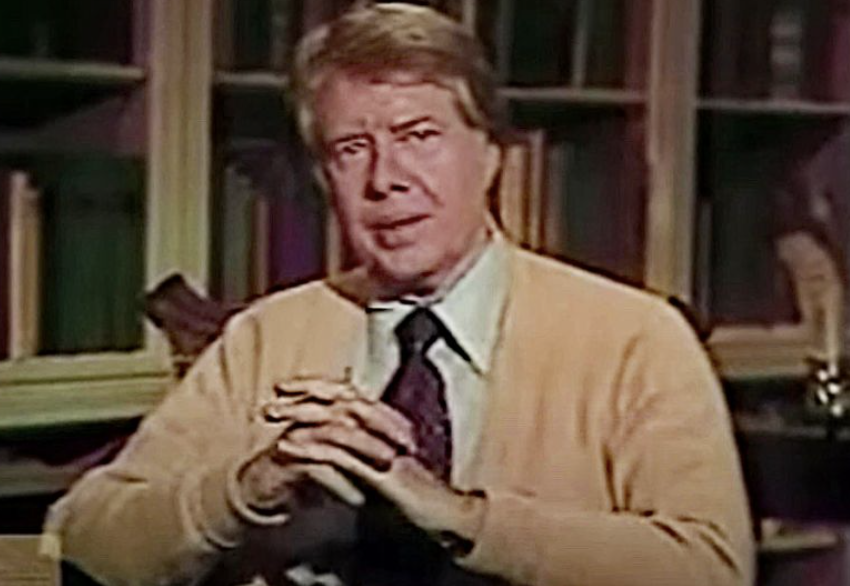It's Time To Notice Our Suffering Machines
A Buddhist lesson in an era defined by immense suffering

Suffering has been on my mind lately. Maybe it’s been on yours too.
My rumination on suffering is mostly about the weird pulling sensation in the back of my right leg – an ailment that didn’t stop me from making a field goal last week at the NFL Experience in New Orleans – but also our lightning fast descent into all-out oligarchic lawlessness, the effects of which we have not even begun to feel.
When I ponder suffering, which for me is most commonly felt through anxiety that could gnaw through granite, I always think back to the Buddhist saying: Desire is the root of all suffering.
I very much appreciate folks supporting BFT. Consider subscribing for $3 or $5 a month, or leaving a tip.
(I’m not a Buddhist, as you probably know, though it seems Buddhists have it right far more often than other major world religions. It definitely seems like things would be better if we all looked strongly into Buddhist teachings and how they help with the condition of being a sentient being. And yes, I realize I probably sound silly to an actual Buddhist right now)
There’s a lot of suffering going around right now in our post-constitutional reality, an acceleration of the disorientation that has defined politics over the past decade. People are in pain. You can feel it at the grocery store with folks trundling around like zombies trying their damndest to act normal in these hideously abnormal times. You can see it on the road where people are somehow more impatient and brimming with rage at others who dare share the road with them. You can hear it in the confusion of those who, for one reason or another, tune out politics as someone else’s game, but are now forced to face the destruction of a government they never really thought about.
I would say the supply of suffering is reaching peak levels, but that would be wrong. The demand for suffering has grown. We can’t get enough. We lap it up like glacier ice Gatorade (the only good Gatorade) in the desert.
This is going to sound like classic victim blaming; I’m not sure there’s any way around that in a society that has told us again and again that we are blameless victims of outside forces, that we have no agency in life, and that we deserve to be indignant about the shit that has gone wrong for us. A victim has free reign to act any way they want to act. Victims also happen to be ready consumers, up for buying anything and everything that will ease their victimhood – their suffering – if only for a moment. I’m hardly above this. I’d have a lot more money today if I had not exchanged so much cash for shit I thought would ease or end my suffering. So it goes.

The expectations and desires we hold deep within us are what we might call our own personal Suffering Machine. We build it with great care and precision from an early age, sometimes with the help of others who have long lugged around their Suffering Machines, sometimes by ourselves. We want this and we want that and we want it now, or in a particular way, and anything short of these desires helps to build the suffering generator and kicks our machines into high gear when our wishes do not match our lived experiences (I know I sound like someone who believes elderberry can cure COVID-19; I promise I’m not). Usually this is expressed through anxiety and/or depression, the former designated for the suffering of chasing the imagined reality, the latter for failing to reach it and knowing you never will. There are ways to temporarily make you forget about the Suffering Machine you’re carrying around. None of these work for more than a moment or two. Believe me, I’ve tried.
The severity of our suffering can be calculated with a basic math equation: How much room is there between your desired outcome – your expectations – and reality? Take that gap and you have the square tonnage of suffering in your soul. If this One Weird Trick to quantifying suffering is real – and I think it is – then it should stand up to a quick test.
-When I take my dog out to pee at midnight in a winter hellscape, wind gusting, wintry mix blowing every which way, and that little shit takes his sweet-ass time, there is a gap between my desire (that doggo pees quickly) and the reality (he’s sniffing around the snow like an asshole). There’s not much of a gap, though one certainly exists, for my expectation was not met. The suffering in this case is low.
-I once bought a Pokemon box set for my son’s birthday. He had talked incessantly for months about this treasure trove of sought-after Pokemon cards. He had saved up money and was ready to purchase the thing when I decided to get the box set for him. My son opened the gift on the night of his ninth birthday and his face fell. Somewhere along the line he had lost interest in this Pokemon set, and Pokemon in general. He had moved on to some other area of high interest – a move of which I was unaware. Watching his muted reaction to the gift, I was quietly furious. Seething, you might say. I had spent an unholy sum of money on Pokemon cards for my kid to immediately dismiss them. The expectation I had created in my head did not match the reality. That distance, considerably greater than when the dog doesn’t piss right away on a cold night, was the measurement of my suffering. I’d call it mild suffering. Bearable suffering.
-I’m going to be vulnerable here for better or worse: When I zoom out and evaluate my life choices and remember that as a kid I truly believed I would be famous and important, and I remember that I am not famous and important, not even close, the gap is downright cavernous, creating the Grand Canyon of suffering. Grabbing hold of the delusions of grandeur implanted into my head as a boy by various authority figures, I created a reality (non-reality) in my head in which I was meant to enjoy a life of fame and fortune, however shallow that might sound to you (it sounds shallow to me too). Fixate on this kind of pain – the zoomed-out kind, the life-evaluating kind – and your Suffering Machine will pump out an unbearable amount of suffering. You’ll beg it to stop. As a teenager, I was certain I would one day host Saturday Night Live. It was not a matter of if, but when. For what reason? I didn’t know. Maybe I’d write a book people liked or folks would be into my sports takes or something. Maybe I’d be a pro golfer or a politician everyone liked. This dream (expectation) I had carefully crafted and maintained for years and years was designed to generate suffering within me. There was never a chance that it would not make me feel bad about myself and my circumstances. The range of outcomes was always extraordinarily narrow. Suffering, and only suffering, was on the menu.
Our Collective Suffering Machine
I spend enough time online, as you likely know, to take the country’s pulse, or at least the folks who, like me, have dedicated themselves to eating society’s pain, one post at a time. And let me tell you, people are fucking miserable right now. It’s way worse than it was in 2017, the last time we had a dalliance with all-out fascism that expanded the gap between the idea of the United States we keep tucked away in our heads and the one that was presented before us as institutions falter and people – both the powerful and everyday varieties – fall in line.
The proliferation of social media and the connections it has made in society over the past couple decades means we now have a collective Suffering Machine, a much larger and more frightening contraption than the relatively small ones we strap to our backs every day. Our suffering gets a little boost with every horrific turn: The world’s richest man just fired ten thousands federal workers and there’s nothing anyone can do about it; the world’s richest man just took food out of the mouths of starving babies and there’s nothing anyone can do about it; the world’s richest man is spreading genocidal lies on his propaganda machine and there’s nothing anyone can do about it.
We’re cooked. We’re fucked. It’s over. Things of that nature. (Writing this essay right now, I stopped to check Bluesky; apparently I was fiending for another hit of suffering, and boy did I find it)
There’s only one way to diffuse our personal and collective Suffering Machines, and that, as far as I can tell, requires us to see the machines, to be conscious of them. This is hardly the last step – for I am aware of my hefty machine and am certainly not free from pain – but it is the most crucial step. Without noticing it, without becoming aware of its existence, the machine will whirr and whirr and whirr and you’ll suck up its vast amounts of suffering and you’ll wonder where this pain is coming from.
Naturally, instinctively, you’ll look outward for the causes of your suffering. Who or what is doing this to me? How dare they. How could they? What did I do to deserve this? You look outward because you have been taught that your contentment hinges entirely on external forces. It’s they who have control over whether or not you’re happy, or just not miserable. As you seek these external happiness killers, the outrage will build in you, sometimes slowly, sometimes all at once, and you’ll get sad and wallow in oceans of self pity or maybe you’ll lash out in ways that are both harmful and unproductive. While it might feel good, this little boost for the ego, it will do nothing to address the suffering created by the gap between your desires (expectations) and your reality. Meanwhile, the machine silently churns. You don’t see it. You look for the next person to blame for your suffering.
So we must see the Suffering Machine we have built, both for ourselves and the one to which we’ve contributed in society, mostly online.
Once you see this wretched machine, you examine it. Maybe right now, as an American living through the most acute crisis in the nation’s history, you desire constitutional rule of law, a system of three branches of government filled with people who jealously guard their branch’s power. It’s something we do not have right now. One branch, the legislative, has abandoned its role in the surprisingly durable little setup created by the U.S. Constitution. Congress has abdicated its role and subverted the entire idea of American democracy. The system can't function like this.
We very much desire a return to the stability and relative fairness of constitutional rule, and the gap between that concept and what we have today – all-out oligarchy, total lawlessness, and eye-watering corruption – could hardly be wider. We’ve arrived at cavernous suffering. We’re feeling it together.
We have some choices here, believe it or not. We could suck down the suffering pumping out of the collective machine. We could (easily) find external factors that have caused this mass suffering: Elon Musk, his criminal DOGE hackers, Trump, congressional Republicans, feckless Democrats telling anyone who will listen that the rule book says dogs are not allowed to play basketball, the fascist Supreme Court justices who happily delivered oligarchy to us. I recognize that this may sound absurd or even offensive to you, but none of those people or institutions are forcing you to suffer. They aren’t turning a knob in your brain that triggers immense anxiety or depression. Thankfully, blessedly, it is one of the few powers they lack.
As much as I wish I could blame Musk and Trump and John Roberts and bumbling Democratic Party leaders and people who voted for Ralph Nader in 2000 for the fear and loathing I feel, for the churning of my Suffering Machine, it’s just not true. This is not an opinion. Unfortunately, it is a fact. They have no control over me whatsoever. Not even Nader 2000 voters.

It’s not that we should not want anything. Not every desire was made equally. In Buddhism, vain and material desires are called tanha. This would include, I suspect, my adolescent desire to be famous and important and widely loved and respected. Aspirational desires, or kusala-chanda, are acknowledged by Buddhist thinkers as worthy. Based on the admittedly sparse reading I’ve done on the topic over the past month (I was hoping to reach enlightenment within 30 days), we should be careful not to group kusala-chanda wants with the far less wise and worthwhile tanha desires.
Thanissaro Bhikkhu, an American Buddhist monk and prolific author, has gone to great lengths to help folks distinguish between what he calls “skillful” and “unskillful” desires that guide our thoughts and actions, for better or worse.
"The path that takes you to nirvana is rooted in desire — in skillful desires the noble truths give two roles to desire, depending on whether it's skillful or not,” Bhikkhu said. “Unskillful desire is the cause of suffering; skillful desire forms part of the path to its cessation. Skillful desire undercuts unskillful desire, not by repressing it, but by producing greater and greater levels of satisfaction and well-being so that unskillful desire has no place to stand. This strategy of skillful desire is explicit in the path factor of right effort.”
Skillful desires, according to Bhikku, are fundamental to personal and societal progress. We need them, in other words. If you notice a desire within you to improve society somewhat, that’s not the same as wanting a slightly-less-shitty car or, in my case, the muscular midsection I had twenty years ago. In theory, skillful desire does not serve as fuel for your infernal Suffering Machine. It’s a critical distinction if we are to start noticing the suffering we create for ourselves. The main distinction between skillful and unskillful wants comes down to the expectations we create and hold on to as the only acceptable outcomes.
“One way aspiration becomes craving is through expectation,” Gil Fronsdal, a Buddhist philosopher, wrote in 2006. “At its best, aspiration has an openness to possibility without a need for anything to happen. This doesn’t mean that we don’t act on our aspirations, but that we don’t cling to their success. There is something satisfying and wonderful in a healthy aspiration that is not dependent on outcome. ... Buddhism recognizes many beautiful aspirations, including wishes of goodwill and kindness for others, and the desire for happiness and other wholesome qualities of mind for ourselves. Central to Buddhist practice are the aspirations for liberation and for the alleviation of the sufferings of others."
Inner wisdom, Bhikku said, "has to learn how to strategize, too, to strengthen skillful desires so that less skillful desires will listen to them. That way desires can be trained to work together toward greater happiness. This is how a mature and healthy mind works: conducting a dialogue not so much between reason and desire as between responsible desires and irresponsible ones."
Action, as I mentioned a while back, is a nice antidote to dooming. It’s also, I think, a good way to pursue skillful desire to save the republic from the menace that has taken control, injecting itself into every crevice of the country in hopes of dismantling it completely.
This action might include getting involved in a crucial Wisconsin Supreme Court race coming up in April or the races for open congressional seats that could flip the House to Democratic control this year. You could also do something more local and straightforward. My son and I recently made sandwiches for unhoused people in the D.C. region. Though it did not end Musk's coup, it felt good. It soothed the doomer within.
I know you want to stop inhaling the suffering fumes from your piece-of-shit Suffering Machine. I do too. Take some time in the next few days to notice it, to finally see it, and to know only you can turn it off. It's a powerful notion.
Follow Denny Carter on Bluesky at @dennycarter.bsky.social.





Comments ()